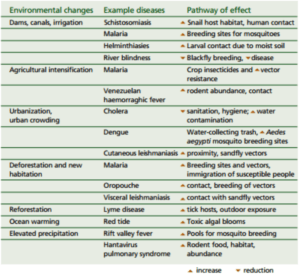Rebuilding a Reputation
Merck: Rebuilding a reputation
It’s been a bad year for pharma. From being quickly thrown into the spotlight by Martin Shrekli (“Pharma Bro”)1 and targeted by presidential candiates2, it only got worse with further evidence of price gouging by Mylan’s Epipen3. In 1991 (the year many RCs were born) Merck, one of the largest pharmaceutical companies, had just won its 5th consecutive Fortune award for being the most admired company4. Sadly, an industry once known for bringing invaluable benefit to patient lives has lost its gleam. While it’s unlikely that the charged discussion around drug pricing will not subside anytime soon, the pharmaceutical industry is still well positioned to rebuild its reputation to another societal challenge – climate challenge.
Merck can help the pharmaceutical industry recover its reputation by joining the cause in mitigating the effects of climate change from both a prevention and treatment front.
- Carbon Footprint…
While agriculture, automotive, and manufacturing industries are the first thoughts when it comes to large carbon footprints, pharmaceutical companies should be responsible for their own impact within the healthcare industry. It’s estimated that pharmaceutical products account for ~20% of the NHS carbon footprint5. This could be due to greenhouse gas (GHG) emissions, water disposal, and water withdrawal. The sheer employee numbers of some companies creates a significant footprint in their communities. For a ~13,000 employee site with large contributions from air travel (international business trips) and purchased electricity (site includes manufacturing)6.
Fortunately, many companies have already set 2020 sustainability goals and made significant strides in a greener future. As one may hope, companies have leveraged scientific methods to reduce their environmental burden. Some notable achievements in 2015 include7:
- Biogen became carbon neutral by investing in environmental projects to offset its carbon emissions. It had built highly efficient manufacturing facilities and reducing the amount of waste that reaches landfills.
- Sanofi is applying analytical methods to better detect and quantify active pharmaceutical ingredients (APIs) that are present in waste water emissions.
- GlaxoSmithKline: In its $59M investment in antibiotic manufacturing in Singapore, the enzymatic technology helps reduce the use of organic solvents and milder processing steps.
Merck has not fallen behind on reducing its own impact8…
Merck Total Energy Use (GJ)
But this is just the first and simplest step.
- Improving Global Health…
Like many other global issues, the consequences of climate often disproportionally affect less developed countries – our focus being infectious diseases9.
Climate change increases the abundance of disease-spreading mosquitos. Perhaps, most fresh on our minds is the Zika epidemic. Warmer climates and increased precipitation create more fertile habitats for mosquito breeding10. Unlike other industries, Merck, among other pharmaceutical companies, have the capability to rapidly develop and distribute vaccines. Merck was one of the companies that had raced to develop a vaccine and had developed the first working Ebola vaccine11. Despite the media mess that 2016 was for the pharmaceutical industry, this is a reminder to us that the large R&D talent pools within companies such as Merck can play an important role in mitigating the impact that climate change has on lives. Reversing the effects of climate change is a grand task, but it surely, if ever, won’t be accomplished overnight. Until then, there are still many people who have their health threatened in the present day.
Zika will surely not be the last infection disease to have an exaggerated threat to human lives due to worsening climate conditions. Merck can be a leader in driving a movement among pharmaceutical companies with vaccine-development capabilities to take a more proactive role in global health affairs. We must empathize with Merck that developing vaccines for markets that have lower ability to pay may not be the most financially lucrative business. However, we must also look past just the numbers:
- Collaboration with WHO/government entities could provide additional access to grants and reduce the financial burden
- Opportunity to explore innovative risk-sharing models with payers, non-profit organizations, and government entities
- Pursuing new ventures with academic labs and startups can help establish new partnerships as internal R&D pipelines dry up
- All healthcare companies have a moral responsibility to do what they can to improve the lives of patients
I have my fingers crossed that businesses around the world will all do their part to preserve our planet for generations to come. I hope Merck will lead the way in caring for today’s generation.
Word Count: 724
Sources:
[2] http://fortune.com/2016/03/04/hillary-clinton-drug-prices-valeant/
[3] http://fortune.com/2016/09/27/mylan-epipen-heather-bresch/
[4] http://archive.fortune.com/magazines/fortune/fortune_archive/1991/02/11/74657/index.htm
[6] https://www.gene.com/good/sustainability/energy
[8] http://www.msdresponsibility.com/environmental-sustainability/climate-change-energy-use/#performance
[9] http://www.who.int/globalchange/environment/en/chapter6.pdf
[10] http://www.climatecentral.org/news/zika-virus-climate-change-19970
[11] http://www.reuters.com/article/us-health-zika-big-pharma-idUSKCN0VC1EB





I like that you touch on two ways that pharma companies can make a difference: 1) reactive and 2) proactive. The reactive part is core to their business of generating drugs to treat or protect patients. In this case, your suggestion of vaccines is a reactive solution to the climate change challenge.
The proactive efforts for these companies to mitigate climate change will be harder to implement. I would consider this in two ways. The first is what you mentioned about energy-saving real estate. This is something they can share best practices with other industries. The more interesting way is what you touched on about using their scientific capabilities to develop solutions relevant to the intersection of biology and environment. Are there certain products pharma companies can develop that are in the realm of something they can sell (and thus align with their profitability goals) that are also used to “treat” the environment the way pharma companies currently treat patients?
Thank you Philip for the post which I found to be very interesting. It seems that one way in which climate change impacts pharma companies` business model is that these companies have to introduce new medicine to fight against epidemics such as Zika virus which is the result, in big part, of global warming. At the same time, it is curious to consider that these type of epidemics represent business opportunities for companies like such as Merck as these ultimately end up selling more products and be more profitable.
The question I have is how do these companies balance the trade-off between their inherent responsibility to act on climate change and at the same time their shareholders pressure to be more profitable? Should these companies limit themselves at minimizing their greenhouse footprint or pro-actively engage and combat climate change at global level?
Really enjoyed this. I think you have correctly identified Pharma as being in a unique position – they are industry consistently under fire yet they are also in greater position to make an impact on quality of life than any other line of business.
It seems like Merck is taking some legitimate steps to reduce their carbon footprint, and to leverage their core business (developing and distributing medicine) as a way to help mitigate climate change. The skeptic in me is both impressed and concerned by how quickly Merck developed Ebola and Zika vaccines. While this is a clear indication of how capable an organization like Merck is when they take an “all-hands-on-deck” approach, it is also could be an indication that we can only expect this type of effort in truly dire situations.
When it’s business as usual, will Merck continue doing things like the rest of the Pharma industry? Mapping this to sustainability, how can we tell that Merck sees climate change as a “pressing issue?” I know they are a business and profits are their ultimate compass, but I just wonder how much more they could be doing.
Thanks Philip for this fantastic post. It did not occur to me before that the change in climate conditions actually make these diseases more widespread. I held a view that it is mostly due to globalization and lot more personnel movement that has caused the diseases to be more widespread than what we used to come across before but I totally see now how climate change also plays a role.
For companies like pharma, after reading your post I do think what they do to reduce their carbon footprint is good but definitely their role in mitigating impact is so much more impactful. One area I do struggle is the line between moral, immoral and business for a company which becomes even more acute for pharma industry. By extension of logic that their ability to make a difference at the cost of profit makes it a moral obligation puts most business in the same bucket where they should be expected to do the same but because it is not so obvious in other business that it does not get noticed. Do you think legislation has any potential role to play to bridge this gap of societal expectations of the business and shareholders expectations for pharma companies?